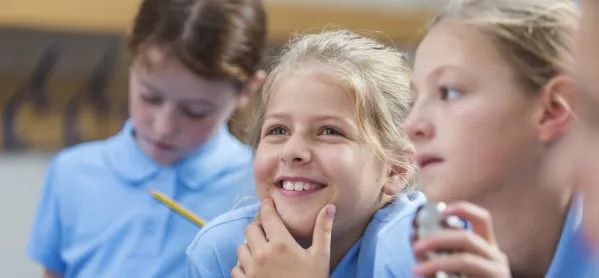- Home
- Why schools must focus on wellbeing in this pandemic
Why schools must focus on wellbeing in this pandemic

When the Scottish government announced on 18 March that schools across the nation would close indefinitely, I - like, I am sure, many other school leaders - felt the immediate pressure.
For many, establishing a comprehensive teaching strategy was the priority. Learning had to be brought online, remote teaching plans created and contingencies put in place in the event of mass staff illness. There was an enormous amount to do in an incredibly short space of time, and all those working in the sector were under a high level of scrutiny to get things right.
However, all children and families across Scotland deserved a rapid response. Consulting with those in other parts of the world several weeks “ahead” of us, we learned it was more than possible to quickly embed plans that were flexible and sustainable, and that had the capacity to evolve.
Wellbeing: ‘Now, more than ever, schools must be an emotional base’
Pupils’ view of Covid: ‘We didn’t talk about lockdown when school came back’
Tes Scotland podcast: Children’s commissioner on Covid
After lockdown: How to look after pupil wellbeing
Advice: 5 ways teachers can prioritise their mental health
Covid’s silver lining? A greater respect for teachers
Faced with an unimaginable set of challenges, it is easy to understand why pupil wellbeing may not have been at the forefront of education leaders’ minds. Yet, there has never been such an important time to make pastoral care a focus.
Coronavirus: The importance of pupil wellbeing
As a teacher of more than 20 years, I have seen first hand the damaging effects that the lack of considered pastoral care can have a child’s educational journey. There is an intrinsic link between emotional wellbeing and educational achievements. By its very nature, blended or full online learning requires young people to learn more independently. While this can be beneficial and one of the main opportunities to arise from the global crisis, it is not something a pupil can suddenly “turn on”. Learning more independently is even less likely to be successful if they are learning in isolation without support.
Young people need to feel nurtured. They need a voice to speak on the issues that affect them, and they need guidance and direction in an age of digital misinformation. The sense of trust young people can find in schools is simply too important to suddenly remove it from their lives. Resource-based learning alone without planned and regular interactions with an academic or pastoral support teacher isn’t enough.
Maintaining emotional, physical and mental wellbeing should never come second to helping pupils to achieve good grades. Rather, it should be seen as the foundation upon which young people will flourish. Wellbeing first, learning second - if we get these things right, in very simple terms, attainment takes care of itself.
Making pupils feel a part of their school community is one of the most crucial steps in a young person’s development. They must feel engaged not only with their education but also with their peers, their teachers and extracurricular activities. When some of the normalities of school life are inevitably compromised by restrictions, comfort, hope and. dare I say it, happiness can be found by accentuating the sense of togetherness and embracing what we love about school life that is possible rather than dwelling on that which simply isn’t in the current climate.
As the pandemic continues to spread around the world and new restrictions become ever more likely, schools must ensure that this sense of belonging is not compromised. They must not lose sight of the positive impact that extracurricular activities can have, whether delivered remotely or physically.
And if further disruption comes, schools should find a way to embed interactive teaching and pastoral sessions into their remote learning. A spirit of transparency is key; not knowing is far more stress-inducing than having clear direction and a sense of rationale behind difficult decisions. Parents would rather hear the “bad news” from those who know and care about their children. Straightforward plans - accessible for all and communicated at the right time - promote calm, measured responses, and, as such, complement proactive wellbeing support.
These may seem like simple measures, but the impact here has been exceptional. All schools across Scotland have the educational talent to deliver this, and more autonomous ways of working and greater powers for school leaders to make key, context-specific decisions for their school communities would help this enormously.
A successful education during uncertain times can only be achieved with a curriculum that extends beyond academia. Learning can and must continue - and it doesn’t need to be at the price of our pupils’ mental and physical wellbeing.
Matthew Pearce is rector (headteacher) of The Glasgow Academy
Keep reading for just £1 per month
You've reached your limit of free articles this month. Subscribe for £1 per month for three months and get:
- Unlimited access to all Tes magazine content
- Exclusive subscriber-only stories
- Award-winning email newsletters
